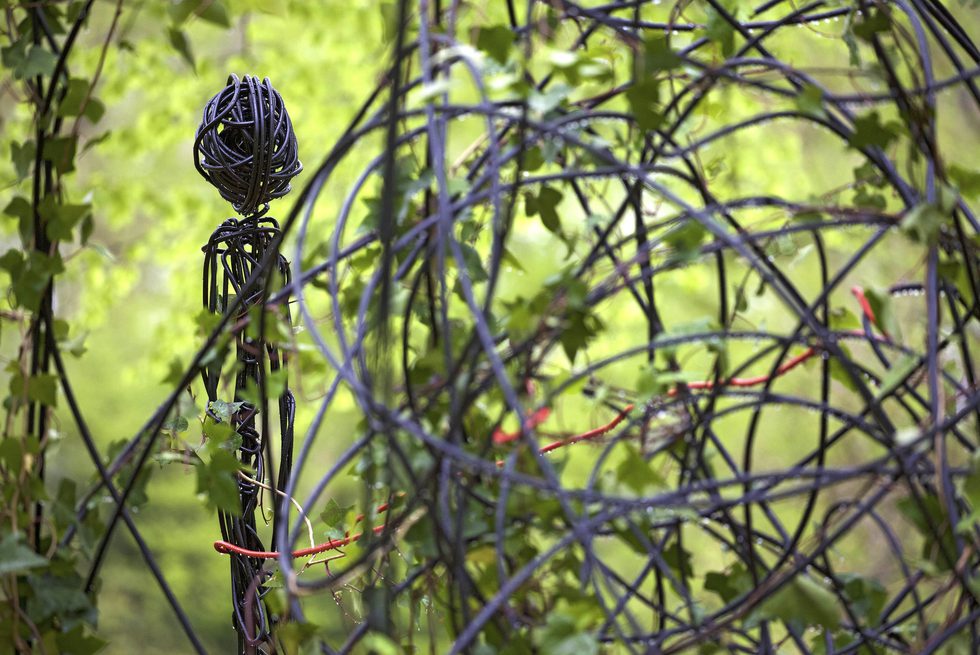Hijacking the Elevator
From the Series: From Reciprocity to Relationality: Anthropological Possibilities
From the Series: From Reciprocity to Relationality: Anthropological Possibilities

Henry Kissinger is said to have quipped that the fights in academia are so vicious because the stakes are so low. But they’re not, really. The stakes are high when you consider that we are setting an example for those we teach, and that we are in positions of power with the kinds of information we produce. The world is in a precarious position, and academia is perilously playing with power when we should be educating and leading the way to a better world. What is at stake is the silencing of research and ideas, not by forces outside of academia, but by fellow academics under the rubric of what counts as valuable academic research.
Power in academia consists in deciding what work and whose work counts, as well as getting to be the one who does the counting. Subjective quantification of a colleague’s work and, in turn, denying their legitimacy and authority is an abuse of power and a form of colonization. In short, counting discounts, and I have seen the most scrutiny around the work of female academics working in politically volatile fields who choose to publish their work in a more accessible form. Recently, Randi Zuckerberg said that because she had an express ride up the elevator (in the male-dominated world of Silicon Valley), she wants to send the elevator back down for other women. One of the problems I see in academia is that while there are successful and inspiring senior academics who support and encourage the work of junior scholars and try to send the elevator back down to those who have not had an express ride up, there is a significant minority who get to the top and on their way up hold or, worse, hijack the elevator.
Colonizing the elevator is evident in discourse deployed to censor women and minorities by saying things like not yet, not enough, doesn’t count, premature, not peer-reviewed, not real research, not a significant amount (of grant money). This is especially damaging for scholars who are working in areas like multimodal production, philosophy, politically charged, or artistic anthropology: the kinds that do not bring in large science grants. Working on what’s allowable and countable for these scholars becomes so time-consuming that, in order to ever get promoted and survive as an academic, they have to give up their experimental, advocacy, and public work. Too many women and minorities in academia internalize the message of not enough. What’s important about this particular moment in history is that it is finally allowing women to say: we have had enough. The stakes have finally become high enough that we can no longer ignore the things we brushed off for years as little inconveniences: a woman’s livelihood, her work and contribution to the field, her need to feel safe and secure and tenured.
Lily King, the author of a novel about a fictional Margaret Mead, portrays Mead saying to her abusive husband and colleague that she would have stayed with him had the bruise not been so noticeable.
We need to re-evaluate what counts and who is doing the counting. Our field, perhaps more than any other, has the knowledge and the platform to make the world a better place, which is why it’s so important that we put these vicious battles to rest and move on to the important work of showing the Kissingers of the world what Margaret Mead famously pronounced: “Never doubt that a small group of thoughtful, committed citizens can change the world; indeed, it's the only thing that ever has.” There is enough room in the elevator, but we face a perception that there is not and so fear and jealousy and a lack of self-esteem build walls and barricade doors. If it hadn’t been for the mentors and friends in this field who helped me ride another elevator when the one I tried to get on was locked, I would have quit long ago. I love anthropology and so, while this is a call for us to be more vigilant and outspoken about the abusers in our field, I also want to celebrate and thank the brave and creative folks who have made room.
Lily King, the author of a novel about a fictional Margaret Mead, portrays Mead saying to her abusive husband and colleague that she would have stayed with him had the bruise not been so noticeable. Recently, with the HAU controversy among other events, including at my own institution, the bruise has become visible. In order to protect our field, pioneered by a brave and outspoken woman who still got bruised, we need to say that enough is enough and get back to the work we all want to do, which is to make this a better world: one student at a time, one word at a time.